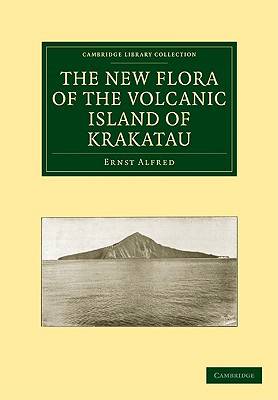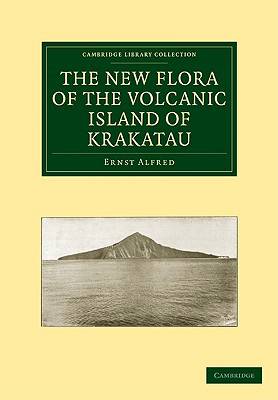
Bedankt voor het vertrouwen het afgelopen jaar! Om jou te bedanken bieden we GRATIS verzending (in België) aan op alles gedurende de hele maand januari.
- Afhalen na 1 uur in een winkel met voorraad
- In januari gratis thuislevering in België
- Ruim aanbod met 7 miljoen producten
Bedankt voor het vertrouwen het afgelopen jaar! Om jou te bedanken bieden we GRATIS verzending (in België) aan op alles gedurende de hele maand januari.
- Afhalen na 1 uur in een winkel met voorraad
- In januari gratis thuislevering in België
- Ruim aanbod met 7 miljoen producten
Zoeken
Omschrijving
On 27 August 1883, the island of Krakatau was destroyed in one of the most violent volcanic events ever recorded. This caused the 'year without a summer', thousands of deaths (mainly from tsunamis), fabulous sunsets and a measurable cooling of the oceans over nearly a century. Krakatau also provided evolutionary biologists with a unique opportunity to investigate the mechanisms of plant dispersal. This had been the subject of laborious research for Charles Darwin, who had speculated upon and, it seems, accurately postulated how an 'unstocked island' might be recolonised. In this 1908 volume, Alfred Ernst analysed the effects of wind, birds and sea currents in the transport not only of seeds but also of trees, branches and even of substantial animals. Krakatau's ecosystem, at a more primitive stage than that Darwin had seen on the Galapagos Islands, demonstrated how simple but continuous natural forces might re-establish a complex ecology.
Specificaties
Betrokkenen
- Auteur(s):
- Vertaler(s):
- Uitgeverij:
Inhoud
- Aantal bladzijden:
- 104
- Taal:
- Engels
- Reeks:
Eigenschappen
- Productcode (EAN):
- 9781108004336
- Verschijningsdatum:
- 20/07/2009
- Uitvoering:
- Paperback
- Formaat:
- Trade paperback (VS)
- Afmetingen:
- 170 mm x 244 mm
- Gewicht:
- 176 g

Alleen bij Standaard Boekhandel
+ 47 punten op je klantenkaart van Standaard Boekhandel
Beoordelingen
We publiceren alleen reviews die voldoen aan de voorwaarden voor reviews. Bekijk onze voorwaarden voor reviews.









